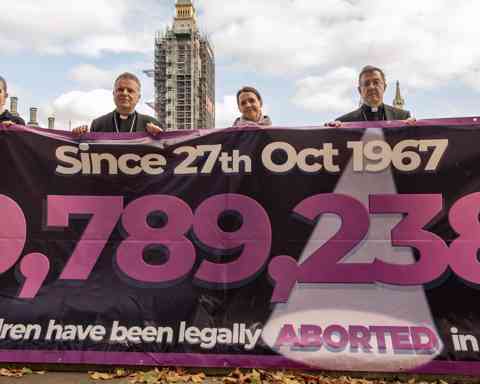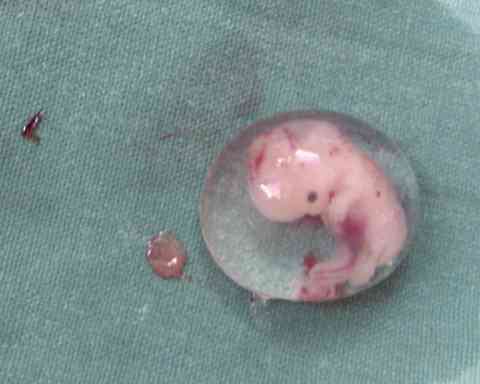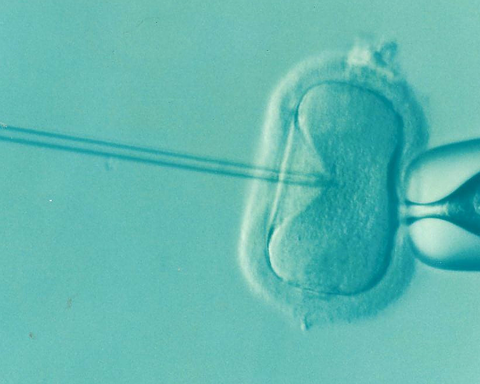Bioethics in Brief: Withdrawing and Refusing Treatment
Bioethics In Brief – Withdrawing And Refusing TreatmentWithdrawing or refusing life-saving or life-sustaining treatment is not a decision to be taken lightly. Human beings are created in the image and likeness of God and our lives have intrinsic value. As such, we have a general duty to preserve and defend life. When a life-sustaining treatment we require is effective and does not present undue burdens to ourselves or to others, then generally we ought to accept it. Such treatment is often called ordinary means.
On some occasions, however, treatment may cease to be effective (i.e., it is now futile), or the treatment may be excessively burdensome, or perhaps it promises fewer benefits than the burdens it entails. For example, an ailing person may benefit very marginally from surgery – the procedure might extend his life by a few months, but will leave him weakened and in a lot of pain. In such cases treatment is no longer obligatory and can be refused. Such treatment is often called extraordinary means. The Catechism of the Catholic Church (§2278) reminds us that to forgo extraordinary means is legitimate as it is ‘the refusal of “over-zealous treatment”. Here one does not will to cause death; one’s inability to impede it is merely accepted’.
The burdens of treatment may take a variety of different forms. Physical pain and suffering may be the most obvious, but psychological and emotional burdens of treatment should also be considered, as well as financial cost (see question below on this specific issue).
Note that while extraordinary means are by definition not obligatory, this does not mean it is necessarily wrong to choose to undergo them. One may have good reasons for continuing extraordinary means for some time – such as to do something important for one’s family or to be present for a major life event.
The distinction between ordinary and extraordinary means is a moral one, not solely a medical one. In general, it is not about the nature of a particular procedure or drug, and how conventional it is, that makes it ordinary or extraordinary means. It is, rather, about weighing up its beneficial effects for a particular patient in his or her particular condition, along with that patient’s ability to withstand any side-effects and shoulder its different burdens. To be done morally, this type of ‘weighing up’ should focus on whether the relevant benefit(s) are proportionate to the burdens that will be incurred. What cannot be ‘weighed’ up is the fundamental importance of human life and/or the wrong involved in choosing to end life, i.e., choosing to kill.
Hence, a patient’s situation must be evaluated on a case-by-case basis, and often it is only the patient who can truly say whether a treatment’s burdens are too much to bear or not. The same treatment might be ordinary means for one person, who may be better able to withstand its side-effects due to age and physical fitness, and extraordinary means for another person, because it is disproportionately burdensome in comparison with its promised benefits.
A special case, however, is food and water. Even when administered via clinical means (e.g., a feeding tube), food and water are not medical treatment, but are part of the ordinary care – just like hygiene and shelter – to which every person is entitled. Pope St John Paul II confirmed this teaching in a 2004 address, stating that providing food and water is ‘in principle, ordinary and proportionate, and as such morally obligatory’. Such care must therefore not be withheld from patients. The only exception to this involves limited cases such as where the food cannot properly fulfil its function, e.g., in cases where a patient’s body can no longer ingest food or cannot do so without undue discomfort or when it will not in fact extend life. This may be the case when a patient is close to death.
Euthanasia not only concerns the means of ending a patient’s life (i.e., an act which is done or not done), but also the intention of the moral agent (i.e., intending to cause death). If life-sustaining treatment (or tube-feeding) is withdrawn with the intention of shortening the patient’s life, then this is a form of euthanasia.
Read the Bioethics in Brief entry on Euthanasia.
However, if life-sustaining treatment is withheld or withdrawn simply because the doctor and the patient genuinely consider that course of treatment to be extraordinary means and disproportionately burdensome, then this is not euthanasia. The intention is not to cause death, but to let the patient avoid the disproportionate burdens of treatment. Though death may come more quickly as a result of treatment being forgone, this is merely foreseen, and is not part of the doctor’s or patient’s intention.
Read the Bioethics in Brief entry on Principle of Double Effect.
A patient’s quality of life has a legitimate role to play in the decision to withhold, withdraw or refuse treatment. However, quality of life considerations can also be misused.
A legitimate use would be to consider how a patient’s long-term quality of life affects their ability to benefit from a particular treatment, which in turn would inform the weighing up of the benefits and burdens of treatment. For example, a poor long-term quality of life might limit the overall benefits that a treatment can bring, and make it more likely that such treatment is disproportionate if it is also burdensome.
Note that in such a scenario, the judgement of extraordinary (or disproportionate) means is made only by assessing the benefits and burdens of the proposed treatment, and quality of life is used to aid this assessment. What is not legitimate, by contrast, is to think that treatment is no longer needed or is futile because the patient’s continued life is of less value than other lives by virtue of being of poorer quality. This would be a misuse of quality of life considerations as it would amount to judging some lives as of lesser value than others.
Once we start thinking in such terms as ‘the patient cannot benefit from living’ or ‘it is in their best interests to die’ then we have begun to judge that the patient’s life, and thus they themselves, are of less value than other persons. That judgment is false and unjust: all human beings and human lives are fundamentally equal in moral worth (i.e., equal in human dignity). Patients and their carers can legitimately judge whether a treatment is worthwhile, but not whether human life itself is worthwhile. Life has an intrinsic dignity which is never taken away even by poor quality of life. While treatment can indeed be withdrawn in some cases, acknowledging this is not the same thing as denying that human life is always a good thing in itself.
The moral importance of every human being is intrinsic and cannot be taken away or diminished by financial considerations. So even when we consider the financial cost of treatment, once again our moral reasoning must be about judging the worthwhileness of treatment, not whether the person’s life (i.e., they themselves) possesses value or not.
Approached in this way, we can certainly accept that financial cost could make a treatment disproportionate, although such a judgement must be made in a fair and sensitive way. Above, we spoke about medicine serving the whole person; here, we must think about whether medicine is serving not just oneself well but also one’s family and community. If the only available treatment for someone is prohibitively expensive and will lead to financial ruin for the family, this might be reason enough to judge it as extraordinary means.
In countries like the UK where taxpayer-funded public healthcare is the norm and medical treatment is heavily subsidised or even free, the aspect of cost is often hidden. Nonetheless, one should remember that even in wealthy countries, medical resources are always limited. A patient or their family might, after careful consideration, come to the view that continued treatment is only of marginal benefit, and the medical resources being used are urgently needed elsewhere. If the intention is not to evaluate the patient’s dignity and worth in terms of cost to the taxpayer, this may be a legitimate form of moral reasoning about extraordinary means.
Most recent
Bioethics in Brief: The Status of the Human Embryo
16 April 2022
Our ‘Bioethics in Brief’ on the Status of the Human Embryo.
Bioethics in Brief: IVF and Artificial Insemination
16 April 2022
Our ‘Bioethics in Brief’ on IVF and Artificial Insemination.
Support Us
The Anscombe Bioethics Centre is supported by the Catholic Church in England and Wales, Scotland, and Ireland, but has also always relied on donations from generous individuals, friends and benefactors.



